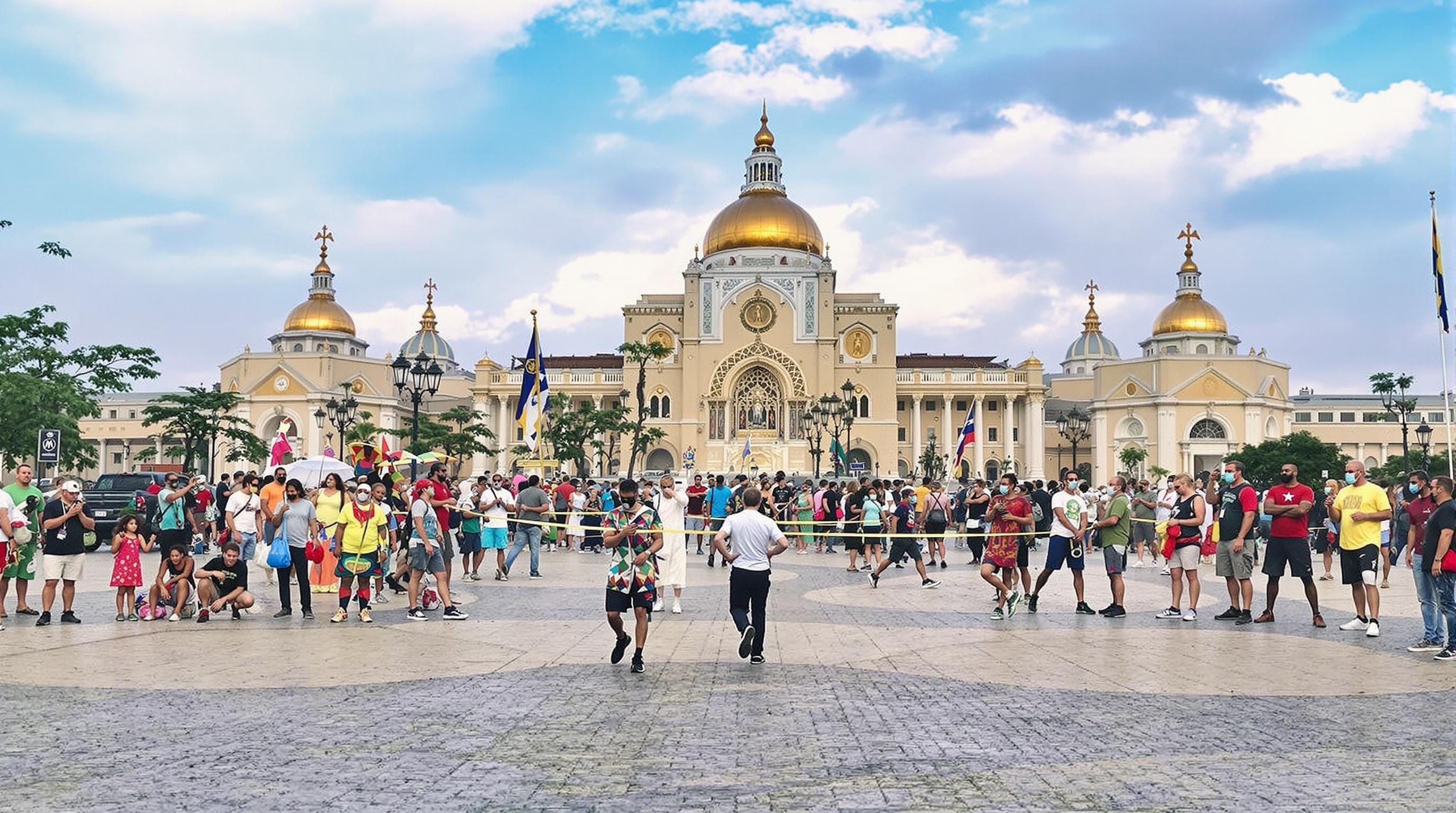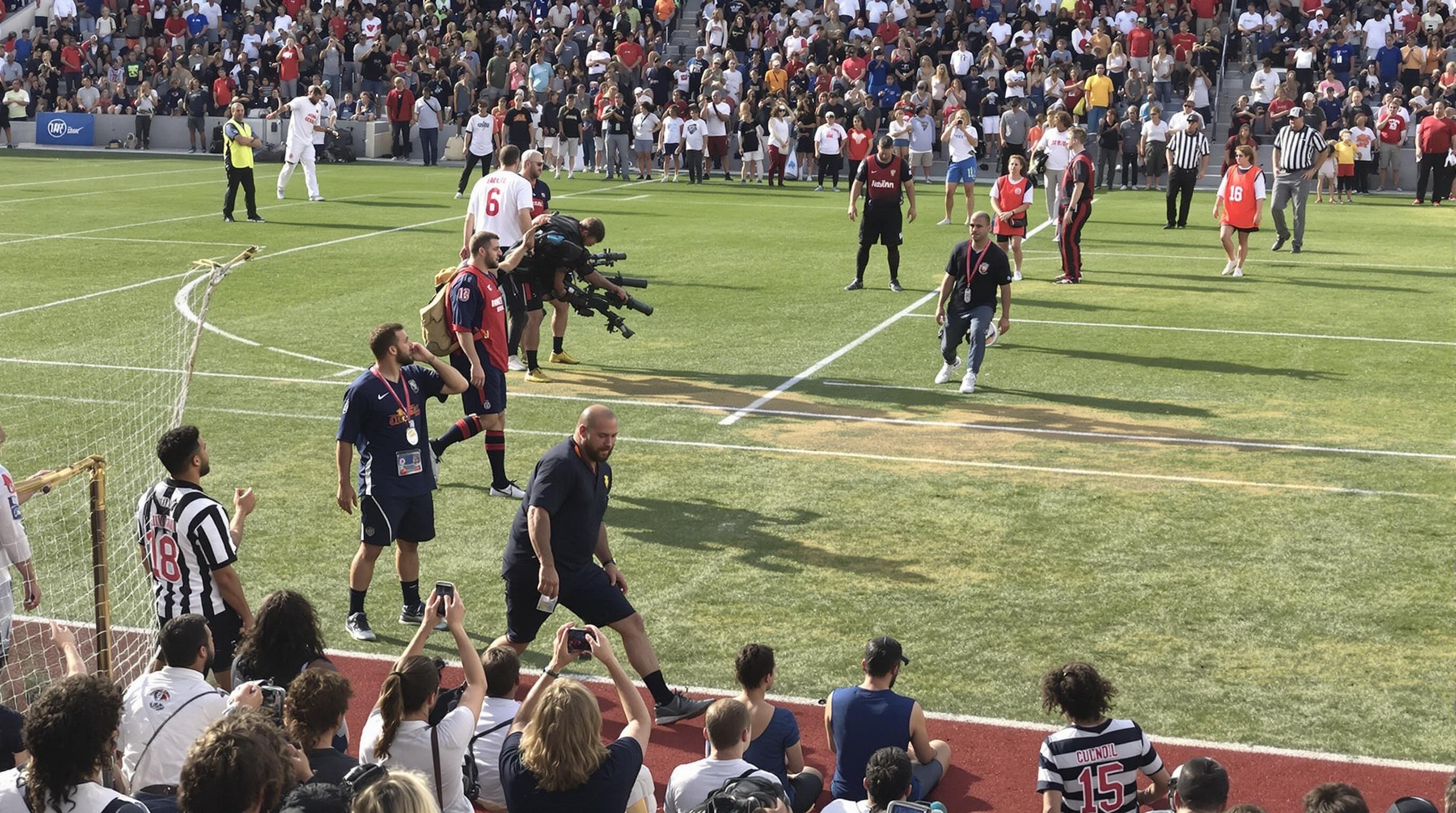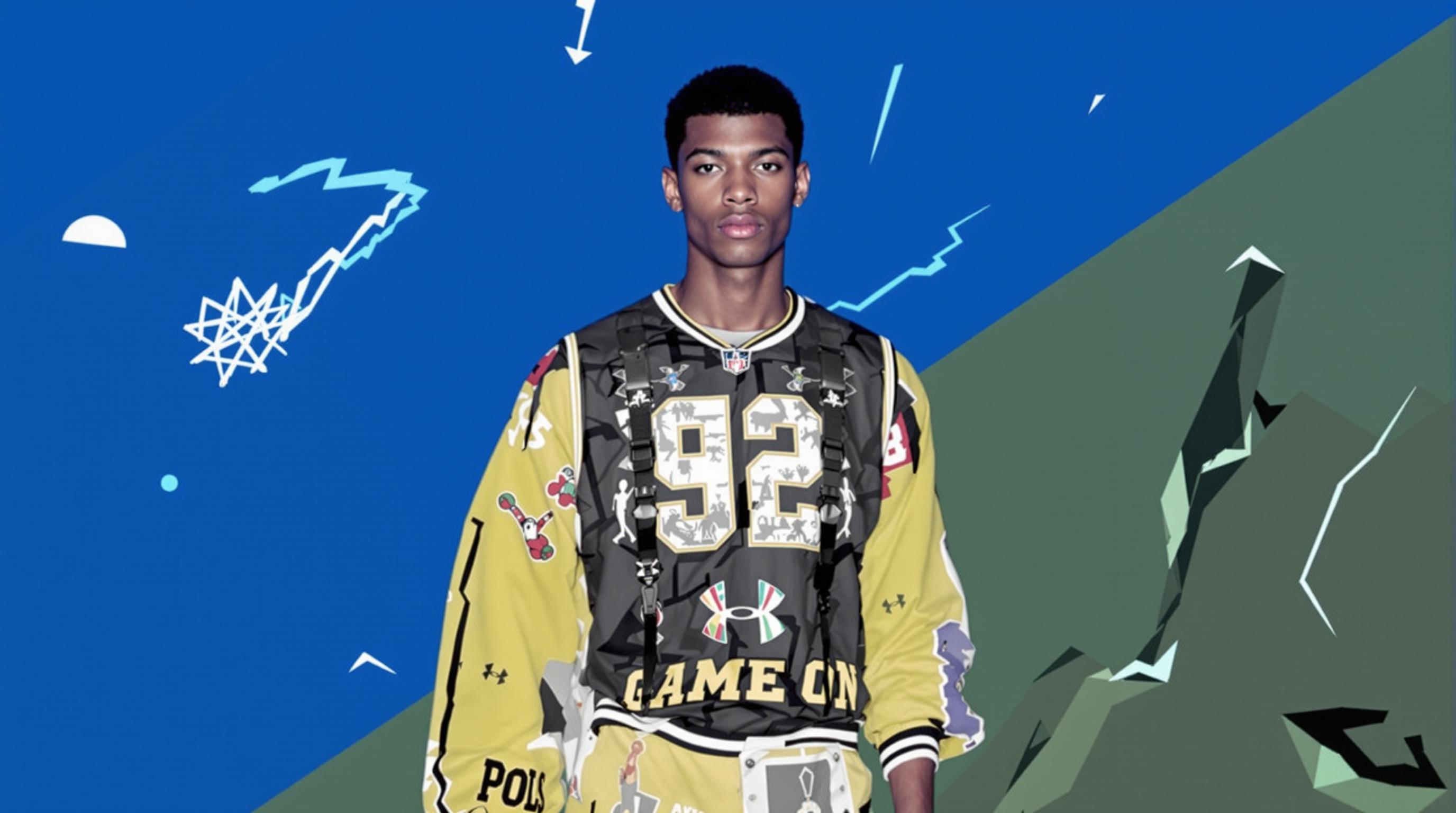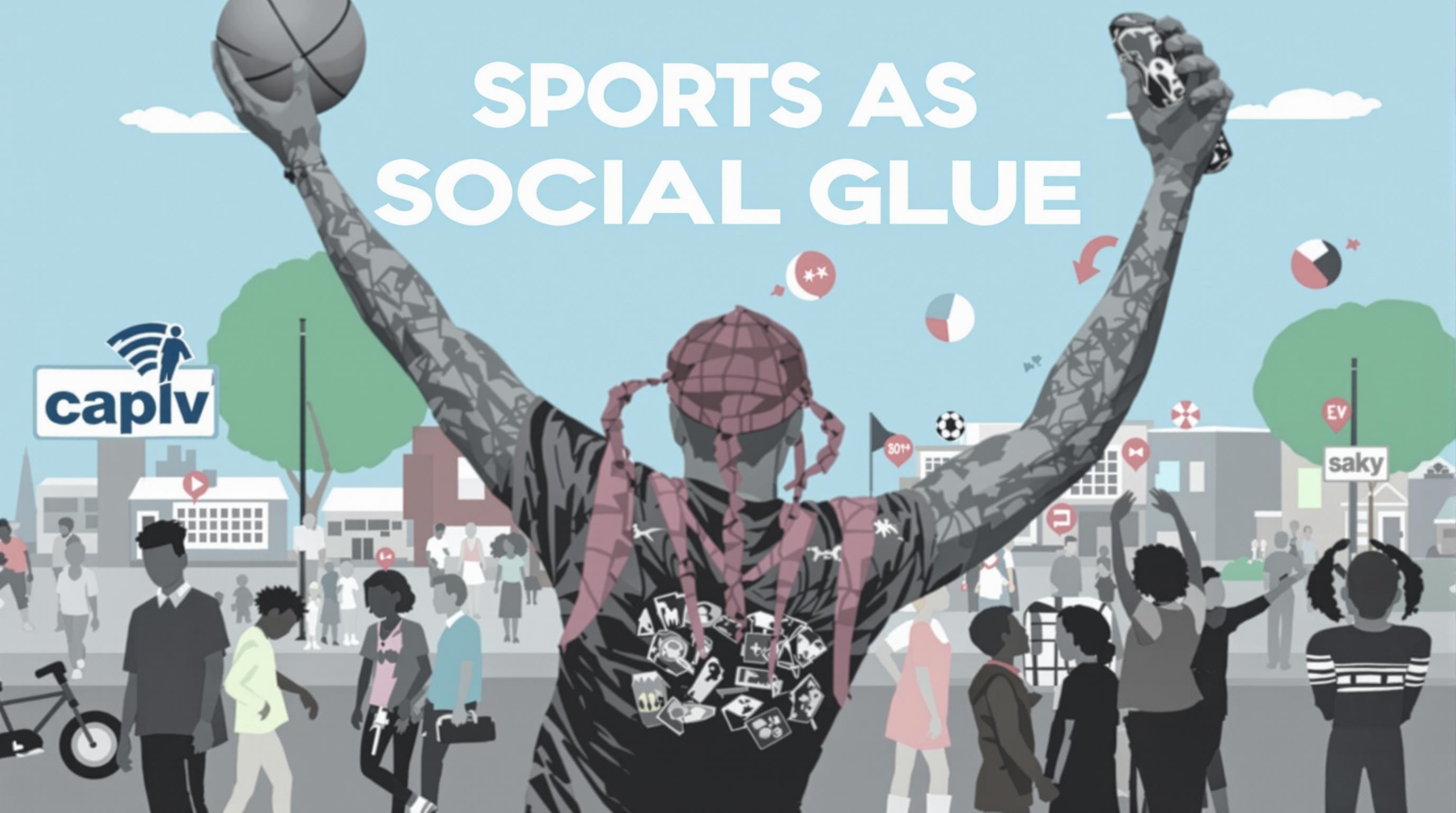Related Articles
- Sporting Rituals: The Curious Connections Between Athletic Events and Ancient Traditions of Worship and Community Bonding
- Game On: The Surprising Influence of Sports on Fashion Trends and Personal Identity in Youth Culture
- Rituals and Rites: How Competitive Sports Influence Cultural Practices in Spiritual and Indigenous Communities
- Sports as Social Glue: Examining the Bond Between Athletic Rivalries and Neighborhood Integration
- Spectacles of Strife: How Weather Patterns Disrupted Historic Sports Events and Changed Athletes' Fortunes
- Bizarre Beginnings: The Unwritten Rules of Quirky Sports and Their Role in Shaping Modern Athletics
Rituals and Rites: How Competitive Sports Influence Cultural Practices in Spiritual and Indigenous Communities
Rituals and Rites: How Competitive Sports Influence Cultural Practices in Spiritual and Indigenous Communities
Rituals and rites have a profound role in shaping cultural practices, particularly within spiritual and indigenous communities. This article explores how competitive sports act as a bridge between modernity and tradition, enriching rituals while fostering connections among diverse identities.
Introduction: The Dance of Cultures
Picture a sun-drenched field scattered with eager athletes donning colorful attire, feathers adorning their heads, their movements rhythmic and purposeful. In many indigenous cultures, competitive sports are more than just games; they are elaborate rituals that articulate identity, community values, and spiritual beliefs. Drawing from personal experiences and cultural observations, this journey delves into how sports play a pivotal role in the lives of spiritual and indigenous communities around the world.
A Historical Perspective on Sports and Rituals
Historically, the connection between sports and spiritual rites can be traced back to ancient civilizations. Among the Olmec and Maya, ball games were infused with religious significance, often played to appease gods or commemorate important cultural events. In fact, the Mesoamerican ballgame was so significant that it was believed to represent the struggle between life and death, with the outcomes influencing agricultural fertility (VanStone & Haeckel, 2019). These athletic events encapsulated the essence of the culture while simultaneously acting as both a spectacle and a religious service.
Modern-Day Practices
Fast forward to the present, where similar trends continue. Indigenous communities in North America often engage in powwows that include various sports, blending modern athletic competitions with traditional dances and rituals. These gatherings provide a platform for cultural expression while fostering a sense of belonging and community among participants. The social dynamic at such events promotes unity, raising awareness about cultural heritage and the Indigenous way of life.
Competitive Sports as a Spiritual Practice
The ceremonial aspects of competitive sports facilitate spiritual experiences, often connecting athletes with a greater purpose. Consider the example of Native American lacrosse, which is played not merely for victory, but for healing and community cohesion. The Iroquois believe that the sport serves as a means to strengthen spiritual connections and honor their ancestors; for them, every goal scored is a tribute to the past and a hope for the future. Thus, competitive sports elevate beyond mere physical exertion, resonating deeply within the spiritual fabric of the culture.
Statistics That Speak Volumes
According to a study published in the *Journal of Indigenous Studies*, over 80% of Indigenous youth reported feeling a stronger connection to their culture through participation in traditional sports (Smith et al., 2020). This statistical evidence highlights how these activities serve not just as physical outlets but also as channels for cultural preservation and identity reinforcement. Furthermore, researchers have found that participating in these sports enhances community cohesion, reducing incidents of social disengagement and fostering mutual respect among individuals.
Stigma and Stereotypes: The Challenges Ahead
Despite the benefits, indigenous athletes often confront stereotypes that undermine their cultural practices. For example, mainstream media representation can perpetuate outdated narratives, depicting Indigenous communities as relics of the past rather than dynamic entities actively reshaping their identities through sports. Addressing these stigmas is crucial for cultural representation, as it impacts the ways in which younger generations perceive their heritage and their roles within it.
The Role of Storytelling in Sports
In many cultures, storytelling is an integral part of sporting events, offering a medium for passing down traditions. For instance, during a traditional Sami reindeer racing competition in Northern Europe, elders recount tales about the ancestry of the participants, emphasizing the importance of heritage in athletic pursuits. These stories draw spectators into the athletes' journeys, transforming a simple race into a communal celebration of culture.
Case Studies from Around the World
Take the case of the haka, a traditional Māori war dance. Performed at rugby matches by the New Zealand All Blacks, this ritual has transcended its origins and become a global symbol of courage and unity. It demonstrates how competitive sports can serve as cultural ambassadors, offering visibility to indigenous practices while adding layers of meaning to modern events (Walsh, 2022). Importantly, the haka is not just a performance; it is a reminder of ancestral strength and the significance of heritage.
Then there’s the example of Native Alaskan games, which include events like the “Kusko 300,” where participants compete in a series of traditional challenges. While they emphasize athletic prowess, these games also honor cultural values such as perseverance and teamwork, reflecting the essence of Indigenous philosophies in sporting contexts (Williams, 2021). From the igloo contests to the powerful storytelling that surrounds these events, they encompass the entirety of cultural identity.
Rituals of Motivation and Community Involvement
In indigenous communities, rituals surrounding competitive sports often aim to cultivate motivation and involvement. The community participates not only as spectators but also through ritual preparations, offering prayers, and sharing meals, symbolically reinforcing social bonds. The involvement extends beyond athletes; it is common to see grandmothers weaving protective charms for players, believing that these tokens enhance their strength and connection to their roots.
A Balancing Act: Tradition Meets Innovation
While the significance of tradition is paramount, modern influences also reshape competitive sports within these cultures. The incorporation of technology, organized leagues, and sponsorships presents opportunities for advancement while also posing challenges to maintaining cultural integrity. For instance, Native American basketball teams have gained sponsorships, enabling them to compete at higher levels. However, balancing financial support and maintaining traditional values can be a complex endeavor. How do we ensure that progress does not come at the cost of cultural identity? This question looms large in many discussions within these communities.
Persuasive Insights: Why We Must Support Indigenous Sports
It is imperative for society to support indigenous sports as they are not just games; they are cultural lifelines. By investing in these events, we help preserve valuable traditions and foster respect for diverse identities. A study by the World Indigenous Nations Sports Alliance showed that communities with strong engagement in indigenous sports reported improved social stability and mental well-being (WINS, 2021). Hence, supporting these initiatives translates to nurturing healthier communities and a more inclusive culture.
Apart from cultural and social benefits, indigenous sports can also boost local economies through tourism and local business sponsorships. Efforts should be made to create meaningful platforms that engage youth while preserving the integrity of traditional practices. It's about ensuring that the drums of a culture continue to beat, the stories are never forgotten, and the spirit is ever vibrant.
Humor and Sports: Where Laughter Meets Tradition
Often, we hear that laughter is the best medicine, too. Indigenous sports events commonly feature friendly rivalries, and the banter that follows can be some of the funniest moments. If you've ever watched a game among the Cree, you’d know that alongside intense competition, there's also hilarious commentary. Just imagine letting your uncle be the referee—everyone knows it’s just a recipe for laughter! These moments remind us that sports, at their core, celebrate life and the joy of togetherness.
Conclusion: Embracing Our Shared Humanity through Sport
As we continue to explore the intersection of competitive sports and cultural rituals, it becomes abundantly clear that these activities serve as vital spaces for cultural expression, community building, and spiritual reinforcement. The stories we tell during games, the rituals we uphold, and the motivations we cultivate are remnants of an intricate tapestry that binds us across generations. Engaging with these practices is an invitation to honor our shared humanity while recognizing the unique contributions of diverse communities. So, whether you're on the field, in the stands, or simply enjoying the stories, remember: competitive sports are more than games—they are a celebration of life, a dance of cultures, and a testament to the human spirit.




